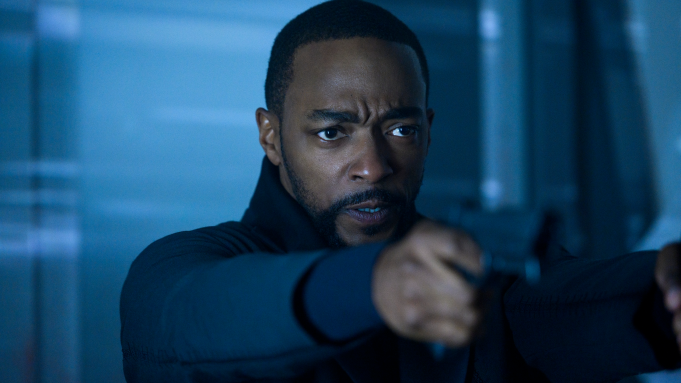Takeshi Kovacs is unable to grin. That’s merely a fact—or, to put it another way, a key aspect of the main character of “Altered Carbon.” After viewing the first ten hours of Netflix’s science fiction adaptation, which is set in a future in which a person’s brain can be digitally stored as a portable “stack” and then transferred into a new body to achieve immortality, it became evident that Joel Kinnaman’s character, Envoy, who is 300 years old and is primarily played by him, is remarkably skilled at shooting, fighting, and having sex.
But beyond that first season, all I can get out of my digitized stack is pictures of a sad, furious, and, most popularly, perplexed Kinnaman, whose expressionless face betrays just a trace of interest. Like his military-trained interplanetary warrior, the actor, best known for his hard-edged action performances in “Robocop” and “Suicide Squad,” might properly carry out Kovacs’ duties, but he is unable to smile.
Altered Carbon Season 2 Review

“Altered Carbon” Season Two struggles to break free from the shadows of its predecessor, haunted by memories of a more compelling narrative. Set in a cyberpunk universe where consciousness can be transferred between bodies, the season follows protagonist Takashi Kovacs on a quest to find his lost love, Quellcrest Falconer. Anthony Mackie takes over the role of Kovacs, inheriting a character lacking the depth needed for a charismatic lead.
The show’s aesthetic prowess shines through with impressive neon-lit noir cinematography and well-executed fight sequences. However, the series falls short in exploring the profound existential questions its premise raises. The potential to delve into issues of identity and humanity in a world where bodies are disposable and customizable remains largely untapped.
Related:
- South Park Not Suitable Review: Delving Into the Latest Special’s Edgy Satire!
- BMF Season 3 Review: A Power-Packed Journey Into the Flenory Saga!

New characters like Danica Harlan feel underdeveloped, and the season relies on returning favorites like Chris Conner’s A.I. Poe for comic relief. Simone Missick’s bounty hunter Trepp emerges as a standout, injecting much-needed relatability and passion into the narrative.
Despite its visually stunning presentation, “Altered Carbon” falters in its approach to gender exploration within its futuristic setting. The series shies away from fully embracing the fluidity that should accompany a world where bodies can be chosen at will. Unlike other forward-thinking narratives, the few instances of gender-switching are treated as deceptive plot points rather than opportunities for nuanced exploration.
While the show maintains its blockbuster look, the failure to capitalize on its intriguing premise leaves viewers yearning for a more profound exploration of the themes introduced. As the series potentially faces a “third and final” season, “Altered Carbon” seems to have squandered the opportunities presented over two seasons, ultimately leaving fans with a sense of unfulfilled potential.

